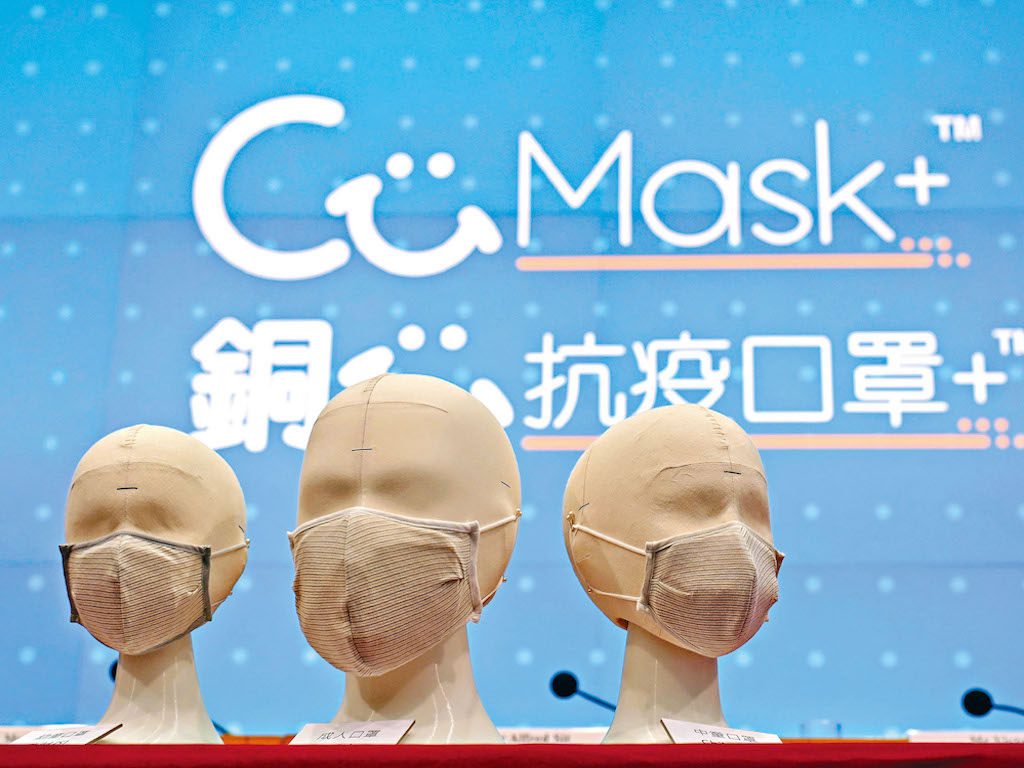3 Mins Read
Every Hong Kong resident will be eligible for a face mask from the government that can be washed and reused many times, as the city begins to gradually ease coronavirus social distancing measures. Applications for the scheme opened on Wednesday morning (May 6), and before noon attracted over half a million registrations. The masks will be distributed to the public via postal services in two weeks time.
Reusable face masks that can be washed up to 60 times will soon be delivered to the city’s 7.5 million population for free in the coming weeks, and come in different sizes for children and adults. The application website for the masks opened on Wednesday (May 6), and over half a million people have already rushed to register for the government-issued masks within hours of opening.
Residents will need names, dates of birth and identity card numbers to request for the mask, which will be delivered to a single delivery address via Hong Kong post.
To ensure that children will have masks for the resumption of classes, the government will distribute directly to primary schools and kindergartens within the next 2 weeks. All of Hong Kong’s 550,000 students will be able to receive 2 masks each, and additional masks will be distributed to elderly living in care homes, homeless people and people with disabilities.
The scheme was first revealed by prominent local microbiologist Professor Yuen Kwok-yung, who said that the masks would come with replaceable filters. A government bureau spokesman said that the masks were developed and produced locally using HK$800 million set aside in the anti-epidemic fund.
The reusable face masks are called “Cu masks” – Cu being the chemical symbol for copper, which is contained in the mask, and is also a play on the words “see you” to represent the desire to socialise during the pandemic.
On Tuesday (May 5), the government announced it will also distribute 30 million single-use face masks to families – a packet of 10 masks per household – from the end of June onwards. No registration will be required, so as to ensure that all members of society, especially vulnerable populations such as essential non-medical staff, gig workers and low-income families are protected from the virus.
Hong Kong’s coronavirus cases have dwindled in the past few days, with health authorities reporting no new locally acquired infections for the 15 days in a row. Health officials, however, have warned that it is still too early to say the chain of transmission has been broken, and that the city must not become complacent. There remain over 130 Covid-19 patients in Hong Kong hospitals, with one in critical condition and 6 in serious condition.
“We [have] won the first battle. But we cannot be prideful during this period. We must make all preparations for a possible second wave in the winter,” said Professor Yuen. He also urged people to “not have too much hope” in a large-scale workable vaccine against the coronavirus, and that for now, people will have to rely on masks.
With the supply of reusable face masks that can be washed and filters replaced, there is hope that the devastation left behind by careless littering of masks can be reduced. In late February, reports surfaced about the astonishing pollution across Hong Kong’s beaches, shorelines and hiking trails as more residents began taking precautions to protect themselves by wearing disposable surgical face masks.
While medical experts agree that single-use masks are effective, they have stressed that these need to be properly disposed of after use. The new reusable masks will aid the anti-pollution efforts in the city, as people will be able to properly wash them and use them for the long-term.
Read our earlier coverage of Covid-19 here.
Lead image courtesy of Sing Tao Daily.




